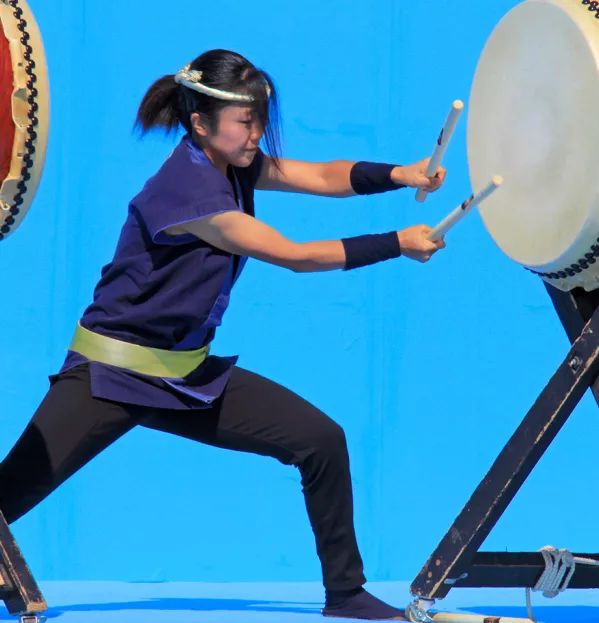- Home
- Teaching & Learning
- Primary
- You can’t beat taiko drumming for engagement
You can’t beat taiko drumming for engagement

When I first heard taiko drumming while in the southern islands of Japan, I knew it would be a brilliant thing to do with children in school; there was something both primal and universal about the sound of the drums. The drumming is performed as part of a group, and I knew that the shared experience, as well as the sheer size of the drums, would captivate the children.
After my trip to Japan, when I was back in the classroom, I was tasked with finding a way to engage a group of disengaged, low-attaining Year 6 pupils who, for various reasons, were the only children not to have gone on our school residential trip. I knew instinctively that taiko could be the perfect tool.
Initially, the main stumbling block was accessing the drums themselves; proper taiko drums are finely crafted and incredibly expensive. But after some internet trawling, I found a local taiko group who were able to come in and run a workshop, bringing their own drums with them.
- Homework: Should homework be set a term in advance?
- Pedagogy: Guided play - the problems with the research
- Literacy: Is this the key to tackling low literacy?
I have to admit, I was slightly nervous. Having persuaded our headteacher to part with funds, I didn’t know if these kids would engage with the idea at all. What transpired genuinely surprised me: children with a strong aversion to following any kind of instructions and who rarely involved themselves in group participation listened, waited, memorised, enjoyed and, most impressively of all, performed to the whole of Year 5 and the headteacher.
It truly highlighted the benefits of taiko: a shared musical experience that is immediately accessible, regardless of ability or prior experience. It’s hypnotic, impressive and physical. It develops gross motor skills, challenges memory, forges collaboration and strengthens self-esteem.
Banging the drum for taiko in schools
We then hit a stumbling block: we wanted to continue to offer taiko in school, but we couldn’t afford our own set of taiko drums and, brilliant as the local workshop group were, we couldn’t afford to have them in on a regular basis.
Fortunately, this was when we met Simon Stokes, a former primary school teacher and founder of Talking Rhythms, a drumming workshop provider.
He made a set of “junk” taiko drums from affordable everyday materials; they mimicked real taiko drums in their sense of scale and variety, but he stretched rubber skins over giant water butts and used other items, such as plastic buckets and lids, all to be played with bachi (traditional wooden sticks).
And so, our after-school taiko club was born. Now successfully running in its fifth year, our taiko group has performed in various whole-school performances and also participated in the 2019 UK Taiko Festival.
We have started a social, communication and inclusive drumming group to support children with a range of specific needs. While we don’t have exact data on how drumming is helping these children, we have plenty of anecdotal evidence that there are positive effects.
We have found that the drumming helps children who have speech and language difficulties to develop their ability to hear and break down a rhythm. This, in turn, seems to support their capacity to differentiate between phonemes in words. Meanwhile, the children with dyspraxia have the opportunity to improve their coordination and to strengthen muscle memory. And as for the children who find social interaction challenging, they have been able to find friendships as they have become an integral member of a group.
If you want to try this in your own school, there are several different taiko groups offering workshops in schools. A quick internet search will show you the ones operating in your area.
The Japan Society is also an excellent source of reference and provides small grants for schools and educational establishments wanting to learn more about Japanese culture. If you are in the East Midlands, I would highly recommend Talking Rhythms.
Sally Kawagoe is a primary school teacher in the East Midlands
You need a Tes subscription to read this article
Subscribe now to read this article and get other subscriber-only content:
- Unlimited access to all Tes magazine content
- Exclusive subscriber-only stories
- Award-winning email newsletters
Already a subscriber? Log in
You need a subscription to read this article
Subscribe now to read this article and get other subscriber-only content, including:
- Unlimited access to all Tes magazine content
- Exclusive subscriber-only stories
- Award-winning email newsletters
topics in this article



